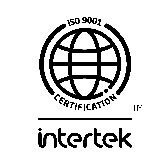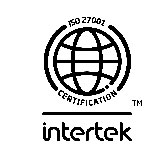- India:
 +91 9100090012
+91 9100090012 - International:
 +91 9883305050
+91 9883305050
NIIT Limited’s (hereinafter “NIIT”) Code of Conduct requires Directors and its Officials to observe high standards of business and personal ethics in the conduct of their duties and responsibilities. As Officials /Directors and representatives of the Company, they must practice honesty and integrity in fulfilling their responsibilities and comply with all applicable laws and regulations.
The Company seeks to encourage an open, ethical and compliant culture and welcomes Directors and Officials sharing their genuine observations and concerns regarding substantive risks, wrong doing or non-compliance.
The Companies Act, 2013 and the revised Corporate Governance norms issued by SEBI require every listed company to establish a vigil mechanism for Directors and Officials to report genuine concerns. It has also been prescribed that the vigil mechanism should also provide for adequate safeguards against victimization of persons who use such mechanism and should have provisions for direct access to the Chairperson of the Audit Committee in appropriate or exceptional cases.
This Whistle Blower Policy is framed in context of these statutory requirements and to put in place an appropriate framework for this purpose.
The purpose of the Whistle Blower Policy is to enable a person who observes an unethical practice/non-compliance to approach the Company without necessarily informing his/her supervisor and without revealing identity if he/she so chooses.
This Policy governs reporting and investigation of allegations of suspected serious irregularities within the Company. This Policy assures protection to the Officials and Directors raising a genuine concern about such irregularities from any negative consequences. In all instances, NIIT retains the prerogative to determine when circumstances warrant an investigation and, in conformity with this Policy and applicable laws and regulations, the appropriate investigation process would be followed.
This Policy recognizes the possibility of leakage or abuse of information relating to complaints which may risk damaging reputations. The Policy therefore requires the strictest confidentiality to be maintained in all respects (i.e. that there is an allegation, what is alleged, who has or may have made the allegation and against whom) and by all parties. It is further clarified that the Policy neither releases Officials and Directors from their duty of confidentiality in the course of their work, nor is it a route for taking up grievances about personal matters, for which the separate grievance redressal mechanism should be used. Requests of a personal nature shall not be entertained through this mechanism and any complaints which are found to be motivated may lead to the invocation of disciplinary procedures as per Company policies.
This Policy seeks to improve Corporate Governance by fostering a compliant and ethical culture through:
Early detection of wrong-doings, frauds, wastages, illegal activities and significant risks;
Bringing in an extra check on compliance with Code of Conduct and applicable laws. To this intent, genuine Whistle Blowers are accorded complete protection from any kind of unfair treatment.
This policy covers NIIT and its subsidiaries worldwide. Where the requirements of local laws are different, compliance with these laws shall be additional. This Policy will continue to apply to NIIT and its subsidiaries in such jurisdictions except and to the extent that there are any contradictions.
Effective Date: This revised and amended Policy has been adopted by the Board of Directors of the Company at its meeting held on January 24, 2019, based on the recommendations of the Audit Committee. This Policy shall be effective immediately.
This Policy will supersede the Company’s old Whistle Blower Policy which was adopted on May 20, 2014.
Early detection of wrong-doings, frauds, wastages, illegal activities and significant risks;
Bringing in an extra check on compliance with Code of Conduct and applicable laws. To this intent, genuine Whistle Blowers are accorded complete protection from any kind of unfair treatment.
The definitions of some of the key terms used in this Policy are given below. Capitalised terms not defined herein shall have the meaning assigned to them under the Code.
“Audit Committee” means the Audit Committee constituted by the Board of Directors of the Company in accordance with Section 177 of the Companies Act, 2013 (“the Act”) and SEBI (Listing Obligation and Disclosure Requirements) Regulations 2015 (“Listing Regulations”) .
“Official” means any employee of the Company and its subsidiaries including a trainee and persons on contract (whether working in India or abroad)
“Code” means the NIIT Code of Conduct.
“Company” means NIIT Limited.
“Compliance Officer” means the Company Secretary of the Company as appointed under the provisions of Companies Act, 2013 / Listing Regulations.
“Investigators” mean those persons authorized, appointed, consulted or approached by the Compliance Officer/Ethics Committee/ Chairman of the Audit Committee (may include the auditors of the Company and the police if required).
“Whistle Blower” means a Directors on Board of the Company or Official of the Company or any of its subsidiaries or joint ventures raising a concern/allegation under this Policy.
If any whistle blower observes malpractices or events mentioned herein below, he/she may without any fear of retribution raise the concern. The Policy presumes that all Officials and Directors of NIIT or any of its subsidiaries or joint ventures will follow the Code of Conduct laid out (Refer to the documents on iNIITian - Corporate Communication - Code of Conduct).
Effective Date: This revised and amended Policy has been adopted by the Board of Directors of the Company at its meeting held on January 24, 2019, based on the recommendations of the Audit Committee. This Policy shall be effective immediately.
This Policy will supersede the Company’s old Whistle Blower Policy which was adopted on May 20, 2014.
Breach of NIIT Code of Conduct and Company Policy.
Abuse of authority resulting in violation of Code of Conduct that will include but not limited to:
- discrimination
- harassment
- conflict of interest (abuse or wrongful non-disclosure)
- transactions with related parties (abuse or wrongful non-disclosure)
- securities transactions (use or leakage of market sensitive information / breach of SEBI regulations)
- illegal payments
Manipulation of Company data/records.
Financial irregularities, including fraud, or suspected fraud.
Deliberate violation of law/regulation.
Disqualifications:
- Grievances related to personal matters will not be considered within the ambit of this Policy.
- Protection under this Policy would not mean protection from disciplinary action arising out of any false or bogus allegation made by a whistle blower knowing it to be false or bogus or with a mala fide intention.
Malpractices and events:
All concerns/allegations should be addressed to the Compliance Officer of the Company for investigation.The contact details of the Compliance Officer are: Email: complianceofficer@niit.com Address: The Compliance Officer, NIIT Limited, Plot No. 85, Sector 32 Institutional, Gurugram -122001 Phone: +91 124 4293360
In case the whistle blower has reason to believe that the concern / allegation is against the Compliance Officer, the complaint may be addressed to Human Resource Head (or equivalent official) The contact details of Human Resource Head are: Email: cpo@niit.com Address: Human Resource Head , NIIT Limited, Plot No. 85, Sector 32 Institutional, Gurugram -122001 Phone: +91 124 4293380
In exceptional circumstances, the allegation may be directly sent to the Chairperson of the Audit Committee. The contact details of Chairperson of the Audit Committee are: Email: chairperson.auditcommittee@niit.com Address: The Chairperson of Audit Committee, NIIT Limited, Plot No. 85, Sector 32 Institutional, Gurugram -122001.
The concern / allegation shall preferably be reported in writing via e-mail so as to ensure a clear understanding of the issues raised and should either be typed or written in a legible handwriting in English.
The concern / allegation shall be forwarded under a covering letter which may or may not bear the identity of the sender for the purpose of providing protection to the whistle blower. The Compliance Officer or any other addressee recipient of the letter, as the case may be, shall detach the covering letter and forward only the concern / allegation to the Ethics Committee for investigation. In case the whistle blower does not intend to avail protection, he/she may choose to reveal his/her identity.
The concern / allegation should be factual and not speculative or in the nature of a conclusion, and should contain as much specific information as possible to allow for proper assessment of the nature and extent of the concern. Where possible, the report should describe the nature of the suspected violation, reasons for believing there is a serious wrong-doing, the identities of persons involved in the suspected violation, whether matter has already been reported and if so to whom and the outcome, a description of documents that relate to the suspected violation, who to contact for more information and the time frame during which the suspected violation occurred. Where the Whistle Blower has not reported anonymously, he/she may be contacted for further information.
All allegations received shall be enquired into under the supervision of a duly constituted Ethics Committee.
The Company shall set up an Ethics Committee specifically to address any complaint of whistle blowers. The CEO shall constitute and convene the first meeting of the Ethics Committee which shall comprise a minimum of three out of the following, taking due care that none of the members may be regarded as being an interested party considering the subject of the concern /allegation:
Chief Financial Officer
Head of Internal Audit
Head of Human Resources
Compliance Officer
Business Unit Heads
Any other person as may deem fit
The Ethics Committee shall review the concern / allegation, decide on enquiries / investigation to be made in the preliminary stage to validate and assess the allegation, identify the person(s) who shall carry this out and in what time frame. This Committee shall consider the findings of the preliminary enquiries / investigations and recommend future course of action.
The first meeting of the Ethics Committee, whether in person or by phone, shall be held within 7 working days of the concern / allegation having been reported.
The decision to make enquiries or conduct an investigation is not an accusation and shall be done as a neutral fact finding process and with all reasonable efforts to maintain confidentiality. The outcome of the investigation may or may not support a conclusion that an unethical act was committed and, if so, by whom.
All concerns/allegations reported under this Policy will be promptly and thoroughly investigated.
The identity of the whistle blower shall be kept confidential to the extent possible given the legitimate needs of law and fairness in investigation.
On receipt of complaint, the CEO will convene a meeting of the Ethics Committee (as explained in Para 8 above).
The Ethics Committee will hold a meeting within 7 working days of the receipt of the complaint. In case any member of the Committee is travelling, other members will have the meeting provided that at least two members are physically present. Other member(s) may participate by teleconference.
At the first meeting of the Ethics Committee relating to any concern/allegation, the Committee shall make an assessment, or decide on enquiries / investigation to be made in the preliminary stage to validate and assess the allegation, identifying the person(s) who shall carry this out and in what time frame. The Ethics Committee will forward the complaint of the Whistle Blower to the Chairperson of the Audit Committee along with its recommendations within one week of its meeting, while proceeding in accordance with its findings/recommendations.
The Ethics Committee shall continue to monitor the enquiries/investigation, using such internal or external resources as considered appropriate, and shall also consider the outcome of such enquiries/investigations, making recommendations for final resolution/closure/action. The Ethics Committee shall keep the Chairperson of the Audit Committee informed on a regular basis, ordinarily within a week of each Committee meeting.
AThe Company reserves the right, and may have a legal obligation, to refer any concerns or complaints regarding malpractices to appropriate external regulatory or statutory authorities.
For certain matters, such as allegations of material frauds or misstatements in the accounts, the Chief Financial Officer or the Chairperson of the Audit Committee shall inform and consult the statutory auditors at the appropriate stage.
If the whistle blower has revealed his/her identity, the Ethics Committee shall hear the whistle blower and record her/his allegations and their basis.
No investigation shall arrive at an adverse finding against anybody without giving them a full and fair opportunity to be heard and to present evidence in their defense. No allegation of wrong doing against a Official or Director shall be considered sustained unless at a minimum, a preponderance of the evidence supports the allegation. This does not however limit in any way NIIT’s right to hand over an investigation to an appropriate regulatory/statutory authority where this is deemed appropriate.
All Officials and Directors have a duty to cooperate in the investigation of concerns/allegations reported and shall be subject to strict disciplinary action up to and including immediate dismissal, if they fail to cooperate in an investigation, or deliberately provide false information during an investigation.
Each enquiry/investigation shall be completed by the Ethics Committee as soon as it is reasonably possible, ordinarily not exceeding a period of 60 days from the receipt of concern/allegation. The Ethics Committee will communicate its findings and recommendations for disciplinary action and other correctives actions, if any, to the Chairperson of the Audit Committee. Chairperson of the Audit Committee may call meeting of Audit Committee, if required.
The decision of the Ethics Committee, after review by the Chairperson of the Audit Committee, shall be final for all practical purposes. If appropriate, both the whistle blower and the person against whom the concern/allegation has been raised have a right to be informed of the outcome of the investigation.
Any whistle blower shall have access to the Chairperson of the Audit Committee in case he/she is aggrieved by the final decision.
If at the conclusion of its investigation, it is determined that a violation has occurred or the allegations are substantiated, the Company will take remedial / disciplinary action as the case may be. The Company will take reasonable and necessary measures to prevent any further violations which may have resulted in a complaint being made.
All complaints received during a quarter, progress on open cases and the findings/ recommendations (including closure or actions taken) on cases closed during the quarter shall be placed before the ensuing quarterly Audit Committee Meeting by the Chairperson of the Audit Committee.
Officials and Directors have a responsibility not to interfere with the investigation and to adhere to admonitions from investigators in this regard. Evidence shall not be withheld, destroyed or tampered with, and witnesses shall not be influenced, coached or intimidated.
If a non-compliance has occurred or a malpractice is proved, it will take the following action to correct it:
Any person found guilty of violation of the NIIT Code of Conduct will be subject to disciplinary action up to and including termination of employment.
During the investigation period or at any time thereafter, if any Official or Director is found to be (a) retaliating against the whistle blower, (b) coaching witnesses, or (c) tampering with evidence, then it would lead to severe disciplinary action including termination of employment engagement
The issues raised by the whistle blowers shall be kept confidential by the Ethics Committee and the enquiry team. No action shall be taken against a Official or Director who makes any disclosure in good faith to the Ethics Committee. The Ethics Committee’s decision shall be recorded and records shall be maintained by Compliance Officer for a period of seven years.
- The Whistle Blower of a concern/allegation shall be entitled to the following protections:
To the extent possible within the limitations of the law and requirements of the investigation, the identity of the whistle blower shall be kept confidential by the Ethics Committee, investigator(s) and the Audit Committee and shall not be disclosed unless such disclosure is necessary for proper investigation. Any such disclosure, if made, for the purpose of a proper investigation shall carry with it a caveat of secrecy and non-disclosure by the recipient, so that any further unauthorized disclosure by such person of the identity of the Whistle Blower shall constitute a breach of the Code of Conduct, applicable to such person; and
Protection of the whistle blower against victimization. The Company assures that any genuine whistle blower shall not be victimized and has set up appropriate processes to ensure this.
This Policy can be changed, modified or cancelled at any time by the Board of Directors of the Company.



